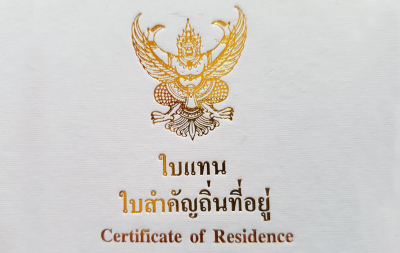The Thailand Smart Visa is designed to attract highly skilled professionals, investors, executives, and entrepreneurs to work in targeted industries, known as S-Curve industries, which are key to the country’s economic growth. Introduced in 2018, the visa offers unique benefits such as long-term residency, exemption from work permits, and flexible employment options. This visa is particularly beneficial for foreign talent in fields such as technology, biotech, renewable energy, and healthcare.
1. Purpose and Goals of the Smart Visa
The Smart Visa was introduced to align with Thailand’s Thailand 4.0 initiative, an economic model focused on transforming the country into an innovation-driven economy. The visa targets S-Curve industries, which include both First S-Curve industries (existing industries that Thailand aims to enhance) and New S-Curve industries (emerging sectors).
a) First S-Curve Industries
These industries are already well-established in Thailand and are being modernized through innovation and technology. They include:
- Next-Generation Automotive.
- Smart Electronics.
- Affluent, Medical, and Wellness Tourism.
- Agriculture and Biotechnology.
- Food for the Future.
b) New S-Curve Industries
These emerging sectors are expected to drive future economic growth. They include:
- Automation and Robotics.
- Aviation and Logistics.
- Biofuels and Biochemicals.
- Digital Technology.
- Medical Hub.
The visa is designed to bring expertise and investment into these areas, helping Thailand to modernize its economy and reduce reliance on low-wage manufacturing.
2. Types of Thailand Smart Visa
There are five main categories of the Smart Visa, each targeting a different group of professionals or investors:
a) Smart T (Talent)
The Smart T Visa is aimed at highly skilled professionals with expertise in science, technology, or engineering. Applicants must have a minimum monthly salary of THB 100,000 and be employed in one of the targeted industries.
- Eligibility: The candidate must possess expertise in the designated industries and be employed by a Thai-based company, research institution, or government agency.
- Benefits: The visa offers a residency of up to 4 years, exemption from work permit requirements, and the ability to change jobs without needing a new visa.
b) Smart I (Investor)
The Smart I Visa targets investors who invest in companies in Thailand’s targeted industries. This visa is designed to encourage foreign direct investment and growth in innovative sectors.
- Eligibility: An applicant must invest at least THB 20 million in a qualified business or company that aligns with Thailand’s Smart Visa industry sectors.
- Benefits: The visa allows up to 4 years of residency and includes benefits for the investor’s family members.
c) Smart E (Executive)
The Smart E Visa is for senior executives who play key leadership roles in companies operating in the targeted sectors.
- Eligibility: Applicants must hold a senior management position, earn at least THB 200,000 per month, and have at least 10 years of work experience in their field.
- Benefits: Executives are granted up to 4 years of residency and are exempt from the need for a work permit.
d) Smart S (Startup)
The Smart S Visa is aimed at entrepreneurs looking to establish startups in Thailand’s target industries. This visa is intended to attract innovation-driven entrepreneurs and foster a startup culture in Thailand.
- Eligibility: Applicants must have a detailed business plan for a startup related to Thailand’s S-Curve industries and maintain a minimum deposit of THB 600,000 (reduced for family members).
- Benefits: Initial visa issuance is 1 year, with the option to extend for up to 4 years based on the performance and establishment of the business.
e) Smart O (Other)
The Smart O Visa is designed for family members of Smart Visa holders. It covers spouses and children and grants them the same visa duration and residency rights as the primary visa holder.
- Eligibility: The applicant must be a legal spouse or dependent of a Smart Visa holder.
- Benefits: The visa allows long-term residency and, in some cases, the ability to work without a work permit.
3. Key Benefits of the Smart Visa
The Thailand Smart Visa offers numerous benefits over traditional visa types, making it a highly attractive option for foreign professionals, investors, and entrepreneurs.
a) Exemption from Work Permit
One of the most attractive features of the Smart Visa is that it allows holders to work in Thailand without the need for a separate work permit. This simplifies the bureaucratic process and reduces the time required to start working.
b) Extended Visa Duration
Unlike standard visas that require annual renewals, the Smart Visa is valid for up to 4 years. This is particularly beneficial for professionals and investors who plan to establish long-term careers or businesses in Thailand.
c) Family Inclusion
Spouses and children of Smart Visa holders can live in Thailand under the Smart O Visa. In some cases, spouses are allowed to work in Thailand without needing a work permit.
d) 90-Day Reporting Exemption
Smart Visa holders are exempt from the standard 90-day reporting requirement that applies to most long-term visas in Thailand. Instead, visa holders are required to report only once a year.
e) Flexibility to Change Jobs
Another key advantage is the freedom to change employers or positions without needing to apply for a new visa, as long as the job remains within one of the targeted industries.
4. Eligibility Requirements and Application Process
The application process for the Smart Visa involves several steps, including obtaining endorsement from the relevant government agencies that confirm the applicant’s expertise or investment in targeted industries.
a) Initial Application
The first step is submitting an application to the One-Stop Service Center for Visas and Work Permits (OSS). The application must include:
- Detailed proof of qualifications or expertise.
- Employment contract or investment proof.
- Business plan (for Smart S).
b) Endorsement from Relevant Authorities
Applications are reviewed by relevant government agencies, such as the Board of Investment (BOI) or the Ministry of Digital Economy and Society, depending on the applicant’s industry. These agencies confirm that the applicant’s work or investment aligns with Thailand’s Smart Visa goals.
c) Visa Issuance
Once the applicant receives endorsement, they can apply for the Smart Visa at their nearest Thai embassy or immigration office. Successful applicants receive the visa and can start working or investing in Thailand immediately.
5. Challenges and Considerations
a) Industry-Specific Requirements
Smart Visa eligibility is highly dependent on the applicant’s ability to demonstrate expertise in one of Thailand’s targeted industries. Individuals or businesses outside these sectors may face difficulties obtaining approval.
b) High Financial and Experience Thresholds
For some Smart Visa types, particularly Smart I and Smart E, the financial and experience thresholds can be quite high. Applicants must carefully evaluate whether they meet the income, investment, or professional experience requirements.
c) Annual Reporting for Progress
While the visa allows extended residency, Smart S (Startup) holders, in particular, must show progress in their business development to qualify for visa extensions. This can be challenging for new businesses that face initial hurdles in setting up.
Conclusion
The Thailand Smart Visa is a powerful tool for attracting foreign talent, investment, and expertise into key growth sectors, supporting the country’s Thailand 4.0 vision. With its wide range of benefits, including long-term residency, work permit exemptions, and family inclusion, the visa provides a compelling option for professionals, investors, executives, and entrepreneurs who wish to live and work in Thailand. However, applicants must navigate the industry-specific requirements and ensure they meet the financial and professional thresholds to fully benefit from the program.





